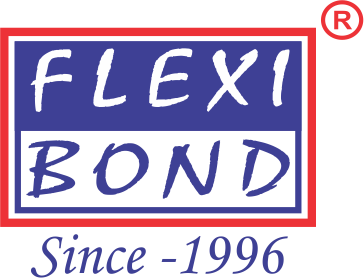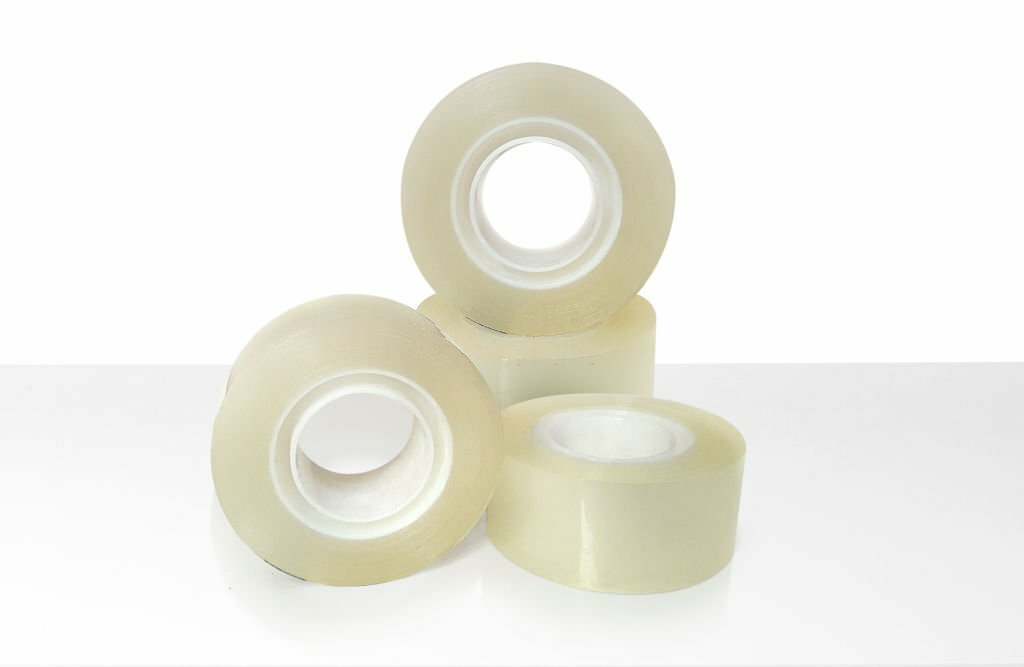Sustainability is no longer a buzzword but a necessity in today’s world. The need for environmentally responsible manufacturing practices is more urgent than ever. Industries across the globe are gradually aligning their strategies to reduce their environmental impact. Among these industries, the tape manufacturing sector has begun to make a mark in the sustainability revolution. Colour cello tape manufacturer in Gujarat, a centre for manufacturing for India, come up with creative ideas to ensure their carbon footprints are cut down by newer materials and approaches that promote sustainability. This piece of writing deals with how they are going to take sustainable future ahead with not only saving the earth but the industry as well.
Demand Awareness in Tape Manufacture
Color cello tapes, which are widely used for packaging, decorations, and all sorts of domestic applications, have always been plastic-based. Escalating this worry is the sensitiveness towards plastic waste. Due to the high anxiety towards plastic waste, the demand of green products is highly on the rise. This has become a significant realization in India also, particularly in industries like Gujarat color cello tape manufacturers.
The Indian government has also added to this by encouraging entrepreneurship toward greener practices. The driving of sustainability from the policymaker’s side is matched in equal force by the same from the consumer end, where sustainability awareness about the environmental cost of what they use or consume is on the increase. The demands for sustainable products are most prominent in tape manufacturing companies, who are shifting towards recyclable or biodegradable products. This would increase the light of motivation for color cello tape manufacturers to innovate according to the demands and requirements of eco-friendly products.
Technological innovations for environmentally friendly tape production:
This evolution of tape production commences with the input of more advanced technologies that incorporate less waste, are energy efficient, and focus more on making the end product sustainable. There is the use of advanced technology in producing the high-quality color cello tapes that produce minimal environmental impacts. For one, the system of automation in the production lines has greatly reduced material waste. By using machines that can precisely control the amount of material used in production, manufacturers can eliminate the excess waste that was once a major byproduct of traditional manufacturing.
Besides, it has energy efficiency too. These machines consume very less electricity that gives a decreased carbon footprint as the modern machinery produces less consumption of electricity in producing goods and also energy efficient machines make a smoother production that minimizes carbon footprints as well. Within this sustainability perspective, color cello tape producers of Gujarat invest massively in such energy-efficient technology for resource optimisation.
A manufacturer that is an industry leader in this regard is Flexibond Tapes, a name familiar to many in the industry. Flexibond Tapes have adopted advanced machinery that reduces waste, conserves energy, and maximizes efficiency. This kind of investment in technology is significant in meeting the sustainability goals because the whole process of manufacturing must be as environmental-friendly as possible.
Material Innovation: Biodegradable Alternatives
For decades, color cello tapes were manufactured using PVC (polyvinyl chloride), a plastic that is known to take hundreds of years to decompose. Recognizing the environmental problems caused by PVC, many manufacturers are now searching for alternatives that are biodegradable or recyclable. It is here that material innovation is at play, and color cello tape manufacturers in Gujarat are leading the way.
Flexibond Tapes, for instance, has come up with biodegradable films that are made from renewable resources. These films can break down naturally, and thus, after the tape is discarded, its environmental impact will be drastically reduced. The company is also moving towards using adhesives that are eco-friendly and free of toxic chemicals to ensure that tapes are not only biodegradable but also safe for both human and environmental exposure.
Biodegradable films have also led other manufacturers to think about recycling plastic for the tapes. Recycling of plastic will result in saving raw materials that could be used for new plastic, thus saving on natural resources, and reduces carbon footprint as less plastic is manufactured. Companies are contributing to a circular economy, giving second-life use to products that have otherwise been waste-bound, and ensuring less material makes it to landfills.
Moreover, most companies are striving to bring the overall thickness of the tapes down. Thinner tapes require minimal raw materials, hence assisting in decreasing plastic usage. In return, it decreases the waste generated when producing each roll of tape. As production costs go down for the manufacturers, there is also a reduction of waste material and subsequently less environmental impact.
Reducing Packaging Waste: A New Approach to Sustainability
The major environmental concern linked to product manufacturing and selling is packaging waste. In tape manufacturing, packaging plays a key role in delivering the products without causing damage during the delivery process. However, the excessive and non-recyclable packaging of the products creates pollution in the environment.
New, sustainable ways of packaging their product are being explored by color cello tape manufacturers in Gujarat. Waste in the form of extra cardboard and plastic wraps, used conventionally, is now being replaced with recyclable, biodegradable, or minimal packaging materials. As a result, the overall waste generated by this tape manufacturing business is slowly coming down.
Flexibond Tapes, a pioneer in this initiative, has recently launched packaging made from 100% recyclable materials. Instead of using plastic or non-recyclable packing materials, the company now uses cardboard that is both lightweight and recyclable. This not only reduces waste but also ensures that the packaging itself can be easily disposed of in an environmentally friendly manner.
Other companies are taking it one step further by minimizing the packaging itself. Manufacturers can reduce their carbon footprint considerably by minimizing the amount of packaging material used per product. It also helps reduce transportation costs since lighter packaging will require less fuel for delivery.
Recycling Initiatives: A Circular Approach to Sustainability
Recycling is one of the best methods for reducing waste and conserving resources. Color cello tape manufacturers in Gujarat are coming up with new recycling programs wherein consumers can return used tapes and packaging materials to the manufacturers as part of their sustainability efforts. In this closed-loop system, manufacturers recycle their products and use them again to make new tapes, thereby requiring fewer raw materials.
For instance, Flexibond Tapes has initiated a program that encourages customers to return used tape rolls and packaging for recycling. The company works with local recycling facilities to ensure that the materials are processed and reused in a responsible manner. This initiative not only helps reduce the overall environmental impact but also encourages consumers to be more responsible with their waste.
It further strengthens the circular economy model, as the use of recycled materials in producing new tapes. As more recycled plastic is incorporated into a production line, it helps reduce the scope of plastic that finds a place on land or in the ocean. The aim is to have a closed-loop system whereby the raw materials used in the production of the tape are recycled and reused to reduce waste and conserve resources.
Consumer Education: Raising Awareness for Sustainability
To be really successful, sustainability efforts must reach consumers and teach them. Even if people know of the environmental merits of ‘eco-friendly’ products, hardly do they know of the appropriate manner in which such products must be disposed of. Here lies a very significant function of consumer education. Flexibond Tapes and many manufacturers are reaching out to the public to raise environmental awareness through what consumers are buying.
By organizing various campaigns, social media, and information resources, the manufacturers urge consumers to shift their preference of tape products towards the use of more environmentally friendly ones. They also give detailed guidance on how to properly dispose of used tapes. Such knowledge is warranted because educating consumers helps promote responsible consumption and the environmentally-friendly disposal of the products.
Future Outlook in Sustainable Tape Production
The future of sustainable tape manufacturing is promising. As the consciousness of environmental concerns grows, so does the pressure on manufacturers to reduce their ecological footprint. This includes the development of biodegradable materials, energy-efficient production technologies, recyclable packaging, and innovative recycling systems. There is more that manufacturers can do to find innovative ways to increase sustainability while ensuring the quality and performance of their products.
Additionally, as consumers continue to demand more eco-friendly alternatives, the tape manufacturing industry will need to adapt and innovate quickly to stay ahead of the curve. The collaboration between manufacturers, consumers, and government bodies will play a key role in shaping the future of the industry, ensuring that sustainability remains a core focus moving forward.
Conclusion
In terms of color cello tape production, Gujarat leads the world, embracing innovation in every step of the manufacturing process. The industry is using new technologies to come up with innovative materials and also investing in recycling programs. Therefore, companies such as Flexibond Tapes are significantly making a contribution towards reducing the negative environmental impact from their products. The industry, as a whole, will continue to develop toward ever greater amounts of waste minimization, resource conservation, and sustainability as a whole as the demand for sustainable products continues to rise. Contact us today for more information.


No comment yet, add your voice below!